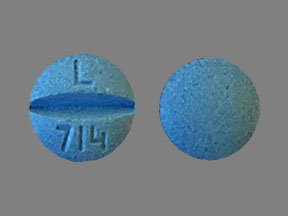
Corgard Coupons & Savings Card – Discount Prices from $39.26
Brand for: Nadolol
My prescription
Edit
80MG, Nadolol (90 Tablets)
Select pharmacy

CVS
$42.00
COUPON PRICE
Albertsons
$39.26
COUPON PRICE
Walgreens
$45.09
COUPON PRICE
Walmart
$54.80
COUPON PRICECorgard savings card
Show this card to your pharmacist
Albertsons
$39.26
BIN
ID
PCN
GRP
019876
LH4A1EEFD8
CHIPPO
LHX
Powered by
Related beta blockers prescriptions
More prescriptions for hypertension
Related beta blockers prescriptions
More prescriptions for hypertension
Corgard (Nadolol) dosage forms
Dosage Quantity Price from Per unit 20MG 1 Tablet $2.69 $2.69 20MG 30 Tablets $8.18 $0.27 20MG 90 Tablets $26.03 $0.29 20MG 100 Tablets $27.92 $0.28 20MG 1000 Tablets $101.30 $0.10 40MG 1 Tablet $2.84 $2.84 40MG 30 Tablets $12.59 $0.42 40MG 90 Tablets $36.00 $0.40 40MG 100 Tablets $37.08 $0.37 40MG 1000 Tablets $134.10 $0.13
| Dosage | Quantity | Price from | Per unit |
|---|---|---|---|
| 20MG | 1 Tablet | $2.69 | $2.69 |
| 20MG | 30 Tablets | $8.18 | $0.27 |
| 20MG | 90 Tablets | $26.03 | $0.29 |
| 20MG | 100 Tablets | $27.92 | $0.28 |
| 20MG | 1000 Tablets | $101.30 | $0.10 |
| 40MG | 1 Tablet | $2.84 | $2.84 |
| 40MG | 30 Tablets | $12.59 | $0.42 |
| 40MG | 90 Tablets | $36.00 | $0.40 |
| 40MG | 100 Tablets | $37.08 | $0.37 |
| 40MG | 1000 Tablets | $134.10 | $0.13 |
| 80MG | 90 Tablets | $39.26 | $0.44 |
| 80MG | 30 Tablets | $17.77 | $0.59 |
| 80MG | 100 Tablets | $41.96 | $0.42 |
| 80MG | 1000 Tablets | $200.70 | $0.20 |
Why was Corgard discontinued?
Corgard, also known by its generic name nadolol, was not widely discontinued due to safety concerns or efficacy issues. Instead, its discontinuation in certain markets was primarily due to business decisions by the manufacturer, such as declining demand, the availability of alternative medications, or strategic shifts in product focus. Nadolol is still available in some regions and can be prescribed for conditions like hypertension and angina.
What is the drug Corgard used for?
Corgard, which is the brand name for nadolol, is used to treat high blood pressure (hypertension) and to prevent chest pain (angina). It may also be used to treat or prevent certain types of irregular heartbeats.
What is the most common side effect of nadolol?
The most common side effect of nadolol is fatigue.
Is Corgard the same as nadolol?
Yes, Corgard is the brand name for the medication nadolol.
What is corguard?
Corgard is a brand name for the medication nadolol, which is a beta-blocker. It is commonly used to treat high blood pressure and angina (chest pain). Beta-blockers work by blocking the effects of certain natural chemicals in the body, such as epinephrine, on the heart and blood vessels. This action helps to lower heart rate, blood pressure, and strain on the heart.
